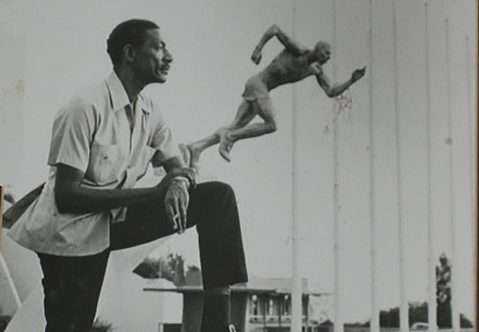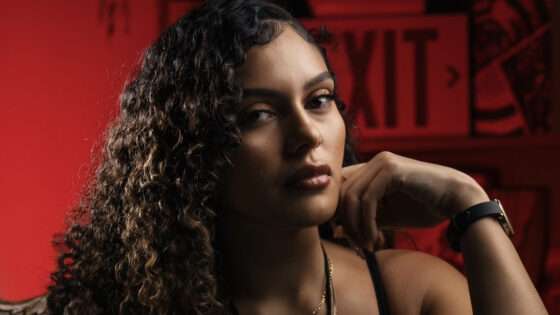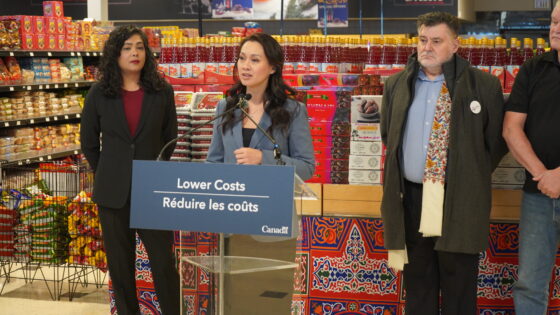on
BY SIMONE J. SMITH
“His memory can’t fade away. He was important in putting Jamaica on the map for track and field.” Valerie Wint
Bang!
The gun goes off. The person in the lead is 10 yards up. The crowd is cheering wildly, anticipating a good run. The athletes are focused on their strides, gliding gracefully on the track, like well-trained Thoroughbred’s.
Coming into the homestretch, it is Wint challenging the leader. 50 yards from the tape it seemed impossible that he could do it. He comes through with extraordinary effort, equalling the record time of 46.2 seconds.
A brilliant race, from a brilliant athlete, at 6 foot 4, the great Arthur Wint wins Jamaica’s first gold medal in the 1948 Olympics.
On the way to the National Stadium in Kingston Jamaica, there is a road named after Jamaica’s “Gentle Giant” Arthur Stanley Wint.
The life, and the legacy of this hero is being recognized by his family, because on May 25th, 2020, Dr Arthur Stanley Wint, OD, DC, MBE would have turned 100 years old.
I had an opportunity to speak with his daughter, Valerie Wint, and I asked her about what it was like to be the daughter of a legend. “I didn’t see him as an athlete. I knew him as a doctor, and first he was my father. During this week, month, and throughout the year, I want Caribbean organizations, to find a suitable way to recognize and honour his accomplishments, his legacy and his memory.”
Join me as we take a moment in time to revisit the making of a legend.
Born into a middle-class family in Plowden, Manchester, Arthur’s star was seen at a very young age. At the age of seventeen he was named Jamaica’s “Boy Athlete of the Year,” and in 1938 he won the 800 m gold medal at the Pan American Games in Panama. Valerie Wint’s Book, “The Longer Run – A Daughter’s Story about Arthur Wint,” describes in detail his earlier years. “Dad wouldn’t talk to me about his life. He was a very humble man. I would pull out the recorder and he would clam up. Most of what I learned about my dad came from speaking to friends and family, as well as conducting some additional research. What I learned outstanding me.”
Our journey took us back to the Second World War, which put an end to international competitions. When the Royal Air Force started to recruit from the British colonies, Arthur and his brothers Lloyd and Douglas joined up. He gained his wings in 1944, and was a Spitfire pilot. He competed for the RAF and won a 440-yard race at the White City Stadium. This was one of many wins, which all lead to the memorable victory at the Olympics in 1948.
1948 was the first time that a team from Jamaica took part in the Olympics. It was the people on the island who raised the money to send the team over. After a 24-day voyage on a banana boat, most of the athletes reached England. Arthur was the Jamaican team captain, and he was already in England completing his first year as a medical student at St. Bartholomew’s Hospital. He won silver in the 800 m, then went head-to-head with his team mate Herb McKenley and several top Americans in the 400 m finals. Unfortunately, Arthur pulled a muscle during the final lap of the 4×400 m relay.
“When my father won the medal, it was the only time God saved the Queen was played,” Valerie tells me. “He was known throughout Britain. He was also well known throughout: Europe, France, Nigeria, Ghana, New Zealand, Czechoslovakia, and to think. This was all before social media. My father was an amateur. His job was not running; his passion was running.”
1953 was a big year for Arthur. He ran his final race, and qualified as a doctor at Bart’s. In 1954, he was awarded an MBE by Queen Elizabeth II. In 1955 he returned home to Jamaica and worked as the only doctor and surgeon in Hanover Parish for many years. “There are certain memories that stick out to me about my dad. I remember in the 50’s during the Polio epidemic, he came home with the vaccine, and everyone in the family received their injection. My uncle gave him his. He was always taking care of his family. He was a husband, a father and grandfather, a domino player; he loved music and sang bass in a choir. To me, he was just dad!”
In 1973, Arthur was awarded the Jamaican Order of Distinction for his service to the community. He returned to England 1974, and served as Jamaica’s High Commissioner in England. At the same time, he was acting as Jamaica’s ambassador to Denmark and Sweden. Arthur returned to Jamaica in 1978, and worked as the Senior Medical Officer and Surgeon at Linstead Hospital until 1985.
He was inducted in the Black Athletes Hall of Fame in the US (1977), the Jamaica Sports Hall of Fame (1989), and the Central American and Caribbean Athletic Confederation Hall of Fame (2003). He was also a founding member and first President of the Jamaica Association of Sports Medicine (JASM). His most important role was a husband and a father to three girls: Valerie, Alison, and Colleen “People used to ask him if he was sorry that he only had girls,” Valerie tells me. “He said no. Having a boy would be too much pressure. A boy would always have to live up to his name. There would not be that much pressure on his girls.”
He was a man whose accomplishments were securely underpinned by his character. He was caring, honourable, humble, and disciplined, a man of great integrity. To learn more about this larger than life legend, visit his website at https://arthurwint.com/
Stay in the loop with exclusive news, stories, and insights—delivered straight to your inbox. No fluff, just real content that matters. Sign up today!
We, as humans are guaranteed certain things in life: stressors, taxes, bills and death are the first thoughts that pop to mind. It is not uncommon that many people find a hard time dealing with these daily life stressors, and at times will find themselves losing control over their lives. Simone Jennifer Smith’s great passion is using the gifts that have been given to her, to help educate her clients on how to live meaningful lives. The Hear to Help Team consists of powerfully motivated individuals, who like Simone, see that there is a need in this world; a need for real connection. As the founder and Director of Hear 2 Help, Simone leads a team that goes out into the community day to day, servicing families with their educational, legal and mental health needs.Her dedication shows in her Toronto Caribbean newspaper articles, and in her role as a host on the TCN TV Network.













